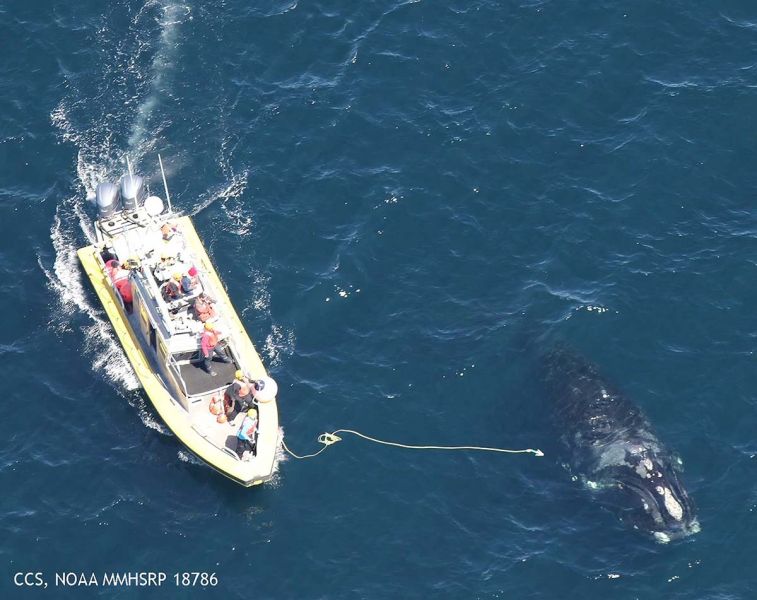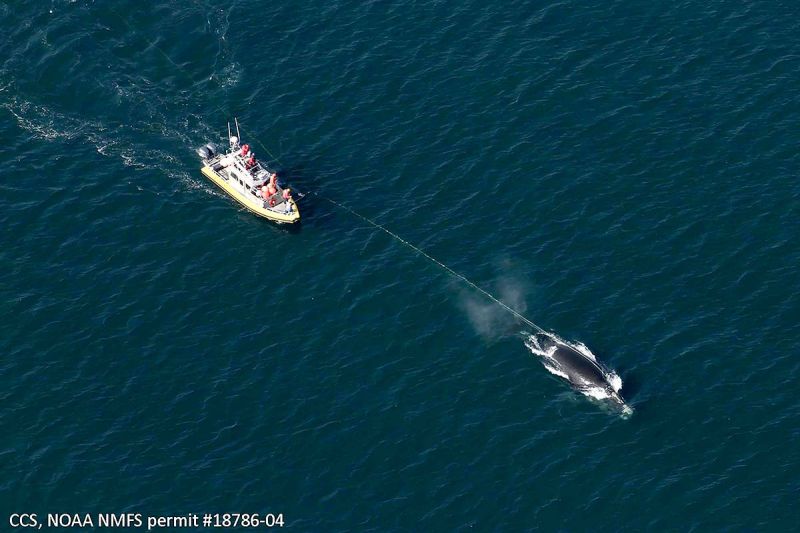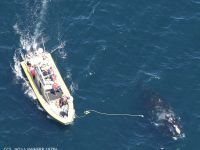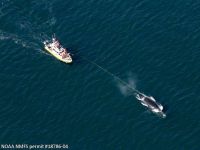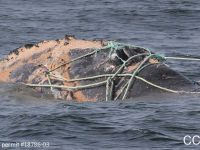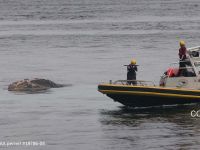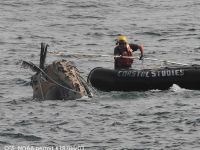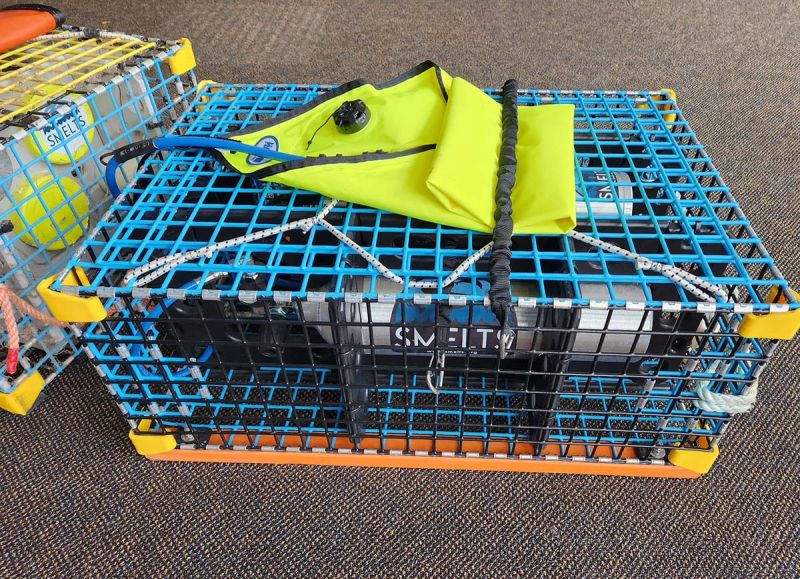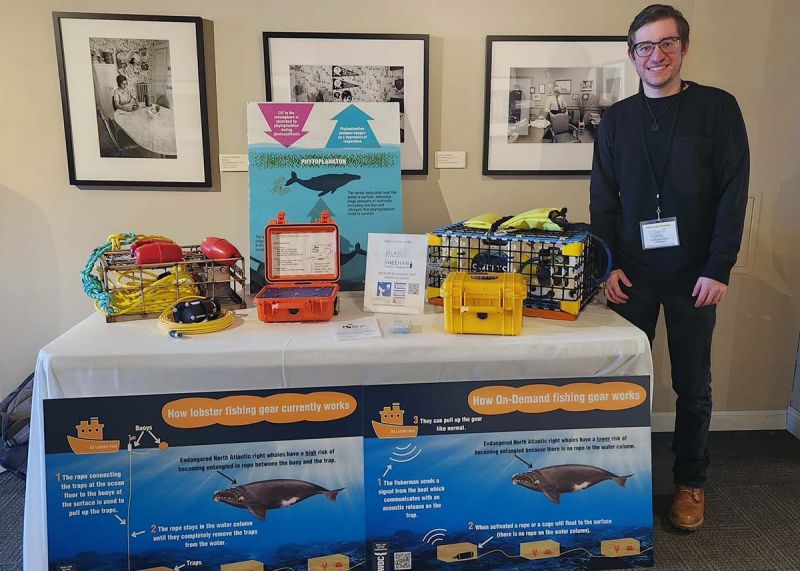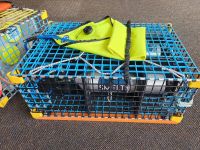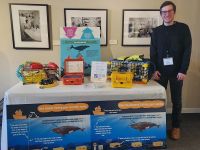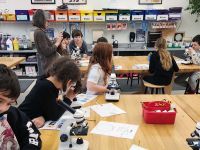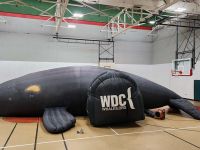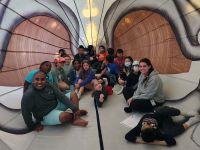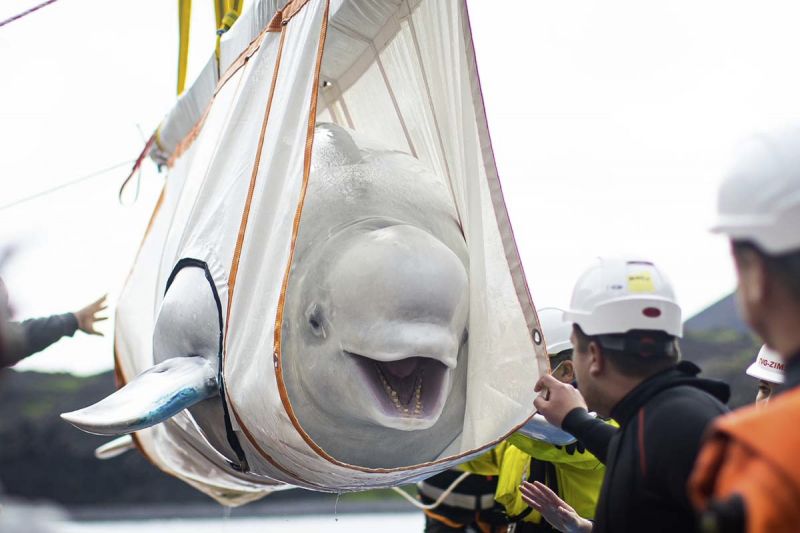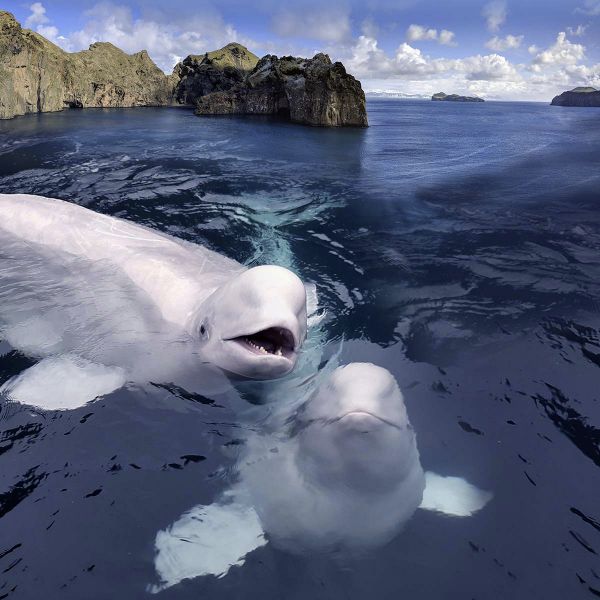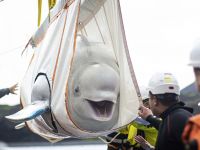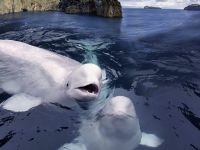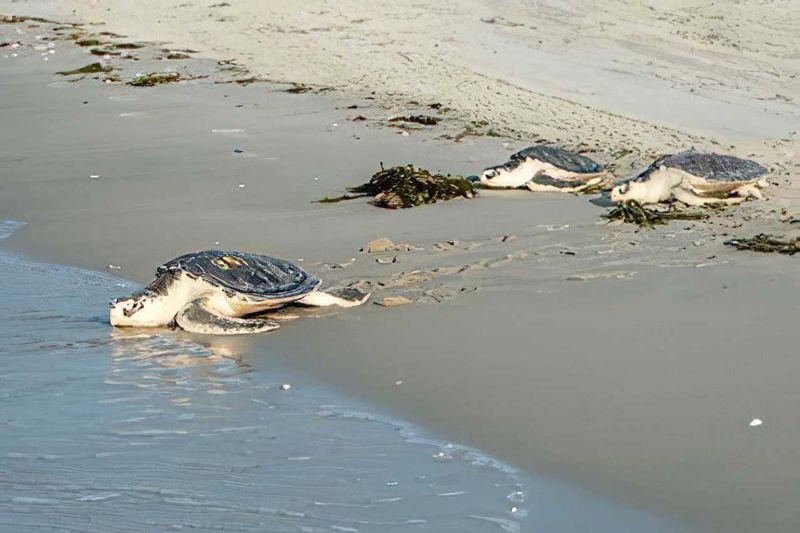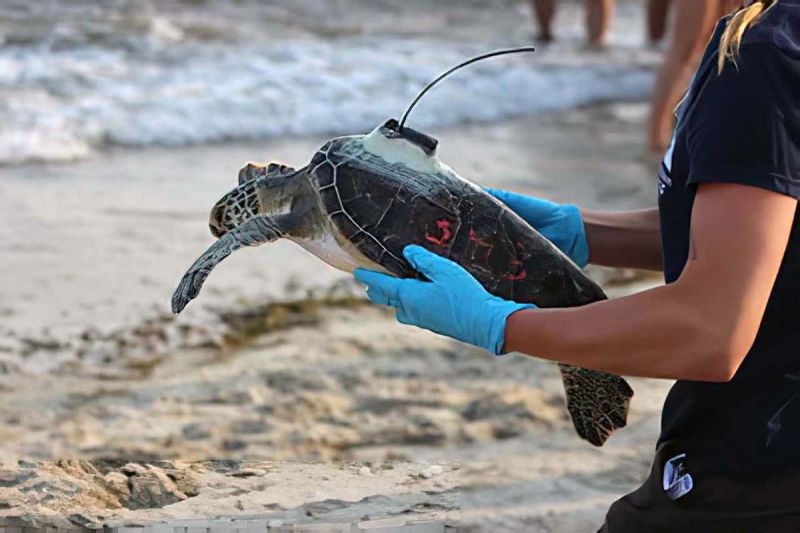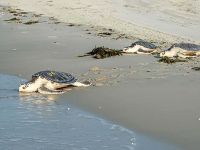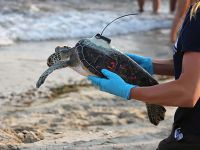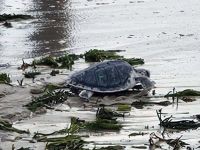It was a busy summer for five Massachusetts-based marine conservation organizations which help save whales supported by The Pegasus Foundation. In fact, 2023 is our Year of the Right Whale though we love all whales! The following essays were submitted by teams at the Center for Coastal Studies (CCS), the International Fund for Animal Welfare (IFAW), Whale and Dolphin Conservation (WDC), the Global Federation of Animal Sanctuaries (GFAS), and Massachusetts Audubon. Each essay carries a unique conservation message. We’ll begin with the Center for Coastal Studies.
Center for Coastal Studies (CCS)
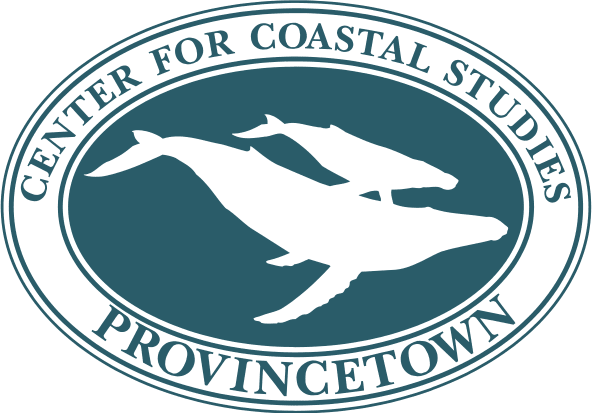 Working to Unlock Clues to Right Whale Survival, August, 2023
Working to Unlock Clues to Right Whale Survival, August, 2023
Witnessing a right whale meandering atop the waves is breathtaking and is akin to seeing natural history in action. But as of October 2022, the population of the North Atlantic right whale (Eubalaena glacialis) was estimated at fewer than 340.
Challenges abound for the species designated as critically endangered by the federal government’s Marine Mammal Protection Act of 1972, and red-listed in 2021 by the International Union for Conservation of Nature (IUCN). Entanglement in fishing gear and vessel strikes lead the causes of right whale mortality. Low fertility rates contribute to a diminishing population. And rising ocean temperatures have caused right whales to shift eating patterns in search of food, often causing them to move to areas with fewer government protections from fishing gear and ship traffic.
But there is hope. From its Marine Lab complex headquartered in Provincetown at the fist of Cape Cod, the team at the Center for Coastal Studies (CCS) uses innovative and proven rescue techniques and several research-based programs, to conserve these large whales which feed on animal plankton call copepods filtered through keratin baleen plates.
The CCS Marine Animal Entanglement Response Program (MAER) provides a “rapid response” to entangled whales along the entire East Coast. So far in 2023, the team has responded to reported entanglements 26 times. Three humpback whales have been disentangled, and one right whale partially freed of fishing lines and gear. Since 2017, 34 right whale mortalities had been recorded. And another 16 whales were documented with serious injuries from entanglements or vessel strikes. The Center also collaborates, trains, and equips other responders on the Eastern seaboard and the Canadian Maritimes, amplifying the Center’s efforts to protect right whales. Collaborators include the Georgia Department of Natural Resources (GDNR), the Florida Fish and Wildlife Conservation Commission (FWC), and Duke University.
With Cape Cod Bay the only known feeding habitat for large numbers of right whales in the US, CCS scientists ask the hard questions like, ‘where do right whales go when not in Cape Cod Bay?’ ‘How does noise impact their feeding?’ and, ‘Which nutritional factors affect whales’ health?’ To answer these, CCS aerial reconnaissance flights tracks the location and behavior of whales in Cape Cod Bay. Location data are relayed to the Massachusetts Division of Marine Fisheries, which enforces fishing and vessel speed restrictions implemented by the Commonwealth. During the 2023 field season, the Center made 34 flights, including 24 surveys of Cape Cod Bay, eight of Massachusetts Bay, and four surveys of the eastern shore of Cape Cod. Aerial observers sighted 195 individual right whales, an additional four were observed from boats, making a total of 199. On the busiest day, April 9th, 85 right whales were observed.
The aerial reconnaissance team also found ten pairs of right whale mothers and calves in Cape Cod Bay out of the 11 known surviving pairs observed earlier in calving grounds, confirming Cape Cod Bay as a nursery for right whale mothers and their calves.
CCS researchers this year collected 262 zooplankton samples from Cape Cod Bay. These data reveal how healthy the Bay is, determine what right whales are feeding on, and calculate their feeding threshold. CCS researchers also analyzed isotopes from samples of right whale baleen archived at the Smithsonian Institution. This unique analysis will allow researchers to identify the latitude and longitude of where these right whales were feeding and determine their location and movements over many years. The Pegasus Foundation is proud to support the Center for Coastal Studies in all efforts to conserve right whales through rescue, and in ecology and population studies.
The Center for Coastal Studies is federally-authorized to perform large whale disentanglement under the authority of permits issued by the National Marine Fisheries Service and United States Fish and Wildlife Service under the authority of the Marine Mammal Protection Act.
International Fund for Animal Welfare (IFAW)
 NARW Campaign to Save Endangered North Atlantic Right Whales
NARW Campaign to Save Endangered North Atlantic Right Whales
The International Fund for Animal Welfare (IFAW) continues its focus and determined efforts to save the critically endangered North Atlantic right whale. Our NARW campaign team’s work has centered around the following activities recently.
Our involvement in the Southeast continues to grow. The Tybee Island Marine Science Center right whale exhibition is still underway, with IFAW as a lead sponsor of the exhibition which will heavily feature Whale Alert as well as IFAW resources and references throughout. Additionally, we are collaborating with ConserveIO and MotionInfo to use AIS to send targeted safety messages and navigation data to vessels transiting through NARW habitat.
In recent months we have fended off numerous attacks on our right whale work. NOAA has put forward draft regulations that would put in place vessel speed restrictions to further reduce the likelihood of mortalities and serious injuries to endangered right whales from vessel collisions. The groups in opposition to this rule are largely composed of business owners and associations with memberships that include vessels > 35ft in length, a class that would be held to seasonal speed rules under the proposed amendments. We have remained activated throughout this fight—providing comments and expert opinions on the proposed amendments, supplying questions, and helping to prep expert witnesses for the oversight hearing, engaging in Hill phone banking, email blasts, meeting with Congressional offices, and engaging our supporters around the newly proposed legislation and riders.
Furthermore, during the last week of July, IFAW co-hosted a virtual briefing, Speeding Towards Extinction: Correcting the Record on Right Whales and the Vessel Speed Rule. Given the onslaught of legislative attacks and the vast amount of misinformation regarding this proposed rule (on and off Capitol Hill), we wanted to have a conversation with the broader environmental and wildlife communities to share not only the background, but also to share resources so we can start to reclaim the narrative and correct the record. There were updates of 175 attendees presenting including representations from multiple Senate and House offices as well as Canadian Parliament right whale representatives. IFAW is hosting a follow up in-person briefing on the issue in October in Washington D.C featuring IFAW expert representation.
Whale and Dolphin Conservation (WDC)
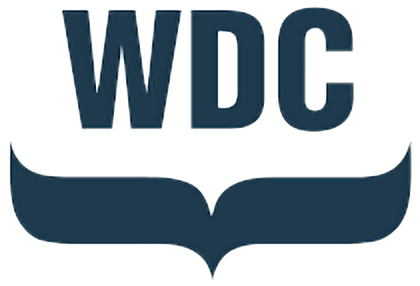 Preventing Extinction of the North Atlantic Right Whale
Preventing Extinction of the North Atlantic Right Whale
The Pegasus Foundation also proudly supports the policy, science, and educational work of the international Whale and Dolphin Conservation (WDC), and WDC’s efforts to prevent the extinction of the critically endangered North Atlantic right whale through its North American office in Plymouth, Massachusetts.
WDC has crafted a formidable legacy of right whale conservation. In 2020, WDC’s Policy Team and its partners petitioned the US government to broaden protections of these special creatures by reducing the speed limit of marine traffic by 2023 to prevent ship strikes, a leading cause of right whale mortality. Unfortunately, a unified opposition effort—including Congressional bills to halt new protections for right whales—have delayed updating the speed limit. In the meantime, WDC is working to prevent these bills from passing. One way is asking for supporters to reach out to their Congressional representatives and advocate for right whale protections.
And finally, WDC believes that education and advocacy create a collective voice through which public demands for right whale protections will arise. Using our life-sized inflatable North Atlantic right whale, WDC has reached more than 5,000 individuals in 2023 through in school programs and public events. Our plankton lab, which meets Next Generation Science Standards, allows students to learn about the importance of copepods as the primary food for right whales. Our Callosities curriculum engages students about individual identification and population assessments.
Research shows that the recovery of whales can be an important nature-based solution to our changing climate and our work to protect right whales is an important part of keeping our ocean and our planet healthy.
Global Federation of Animal Sanctuaries (GFAS)
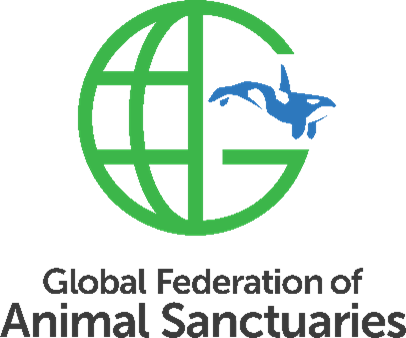 'Sea Change' for Captive Whales and Dolphins
'Sea Change' for Captive Whales and Dolphins
The Global Federation of Animal Sanctuaries (GFAS) received a grant from The Pegasus Foundation for its work for a ‘Sea Change’ for Captive Whales and Dolphins.
In a defining moment for the future of captive cetaceans across the globe, the Global Federation of Animal Sanctuaries is proud to announce the creation of the first ever set of Standards of Excellence for cetacean (whales and dolphins) sanctuaries. The Global Federation of Animal Sanctuaries (GFAS) is the only globally recognized accrediting body for animal sanctuaries, rescues, and rehabilitation and release centers.
GFAS Standards for sanctuaries that care for land animals have been in place for many years. The establishment of Standards for cetacean sanctuaries was a clear next-step; whales and dolphins are highly intelligent, wide-ranging, socially complex cultural beings, whose species-specific needs simply cannot be met confined to concrete tanks in entertainment parks and aquariums. Such captive facilities are associated with a shockingly high animal mortality rate, as cetaceans need space to travel and depth to dive, the opportunity to live in a rich, supportive social network of friends and family, the ability to explore a dynamic environment filled with interesting objects and other animals, and the ability to make their own choices daily. Thankfully, public opinion has turned against keeping cetaceans in captivity and seaside sanctuaries for whales and dolphins retiring from marine parks and aquariums are now being created.
At the same time, there are many entities that describe themselves as “sanctuary” for animals, but the quality of animal care can vary widely among them. It is a poorly regulated industry, in which facilities that keep animals in deplorable conditions can identify themselves as comparable to those of the highest quality. For anyone invested in the welfare of animals there is a need to differentiate the best sanctuaries to determine which warrant financial support and other assistance, which sanctuaries are models for others to follow, and which sanctuaries can be turned to in a time of crisis. GFAS Accreditation differentiates authentic sanctuaries from pseudo sanctuaries, ensuring retired and rescued animals are treated with respect and given what they need to thrive.
These new Standards are the product of GFAS’s pioneering collaboration with top cetacean experts at the SEA LIFE TRUST, Merlin Entertainments, The Whale Sanctuary Project, and the National Aquarium, as well as more than 30 expert contributors and reviewers from around the world. Like all true sanctuaries, GFAS Accredited cetacean sanctuaries will employ ethical and operational principles such as no breeding, no performances and freedom of choice for the animals. The animals’ wellbeing will always be the priority in animal care, sanctuary design and overall operations.
NEW Standards for Cetacean Sanctuaries can be viewed on the GFAS website.
Images Courtesy of GFAS
Massachusetts Audubon
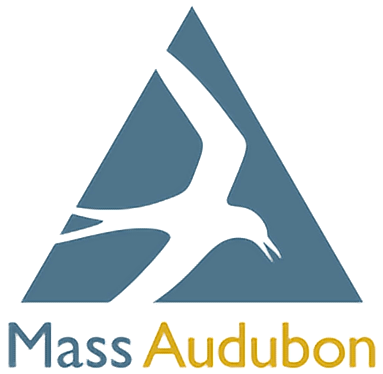 Turtle Rescues
Turtle Rescues
From whales to turtles! The Pegasus Foundation awarded a grant to Massachusetts Audubon for its innovative turtle rescue program.
This summer, four Kemp's ridleys went back to their ocean home, after being rescued and transported to rehabilitation care last fall at New England Aquarium's Animal Care Center. There they received expert veterinary care and recovering from severe physical effects of cold-stunning. Here are some images to share of that summer release on Cape Cod at West Dennis Beach.
In 2023, The Pegasus Foundation helped fund the turtle rescue program at Massachusetts Audubon. Last fall, eight Kemp’s Ridley turtles were rescued by Mass. Audubon and a corps of volunteers. The turtles were rehabilitated by a team at the New England Aquarium. The following images are from July 12th, when the turtles were released back into the wild at a beach in West Dennis, on Cape Cod.
Release Details:
22-0154: Kemp's ridley
Stranding date: November 20, 2022
Stranding location: Kingsbury beach, Eastham
Rescuer: Olivia Guerra
Driver: Jay Munsey
22-0837: Kemp's ridley
Stranding date: December 16, 2022
Stranding location: Long Pasture sanctuary beach, Barnstable
Rescuer: Ian Ives
Driver: Bob and Martha Nolan
22-0838: Kemp's ridley
Stranding date: December 16, 2022
Stranding location: Sandy Neck, Barnstable
Rescuer: Sandy Neck Rangers
Driver: Bob and Martha Nolan
22-0229: Green
Stranding date: November 22, 2022
Stranding location: Campground beach, Eastham
Rescuer: Joanna Buffington
Driver: Bob and Martha Nolan
22-0343: Green
Stranding date: November 27, 2022
Stranding location: Great Island, Wellfleet
Rescuer: Andrew Young
Driver: Mike and Andrea Howlett


